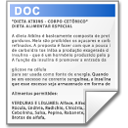Effect of neck strength training on health-related quality of life in females with chronic neck pain: a randomized controlled 1-year follow-up study
Downloads:
Salo, P., Häkkinen, A., Kautiainen, H., & Ylinen, J. (2010). Effect of neck strength training on health-related quality of life in females with chronic neck pain: A randomized controlled 1-year follow-up study. Health and Quality of Life Outcomes, 8:48. Retrieved from http://www.hqlo.com/
Published in
Health and Quality of Life OutcomesDate
2010Copyright
© 2010 Salo et al; licensee BioMed Central Ltd.
This is an Open Access article distributed under the terms of the Creative Commons Attribution License (http://creativecommons.org/licenses/by/2.0), which permits unrestricted use, distribution, and reproduction in any medium, provided the original work is properly cited.
Abstract
Background
Chronic neck pain is a common condition associated not only with a decrease in neck muscle strength, but also with decrease in health-related quality of life (HRQoL). While neck strength training has been shown to be effective in improving neck muscle strength and reducing neck pain, HRQoL among patients with neck pain has been reported as an outcome in only two short-term exercise intervention studies. Thus, reports on the influence of a long-term neck strength training intervention on HRQoL among patients with chronic neck pain have been lacking. This study reports the effect of one-year neck strength training on HRQoL in females with chronic neck pain.
Methods
One hundred eighty female office workers, 25 to 53 years of age, with chronic neck pain were randomized to a strength training group (STG, n = 60), endurance training group (ETG, n = 60) or control group (CG, n = 60). The STG performed high-intensity isometric neck strengthening exercises with an elastic band while the ETG performed lighter dynamic neck muscle training. The CG received a single session of guidance on stretching exercises. HRQoL was assessed using the generic 15D questionnaire at baseline and after 12 months. Statistical comparisons among the groups were performed using bootstrap-type analysis of covariance (ANCOVA) with baseline values as covariates. Effect sizes were calculated using the Cohen method for paired samples.
Results
Training led to statistically significant improvement in the 15D total scores for both training groups, whereas no changes occurred for the control group (P = 0.012, between groups). The STG improved significantly in five of 15 dimensions, while the ETG improved significantly in two dimensions. Effect size (and 95% confidence intervals) for the 15D total score was 0.39 (0.13 to 0.72) for the STG, 0.37 (0.08 to 0.67) for the ETG, and -0.06 (-0.25 to 0.15) for the CG.
Conclusions
One year of either strength or endurance training seemed to moderately enhance the HRQoL. Neck and upper body training can be recommended to improve HRQoL of females with neck pain if they are motivated for long-term regular exercise.
Trial Registration
ClinicalTrials.gov NCT01057836 ...
...
 ...
...
Publisher
BioMed Central (BMC)ISSN Search the Publication Forum
1477-7525Metadata
Show full item recordCollections
- Liikuntatieteiden tiedekunta [3164]
License
Except where otherwise noted, this item's license is described as Petri K Salo et al.; licensee BioMed Central Ltd.
Related items
Showing items with similar title or keywords.
-
Effectiveness of peer support on health-related quality of life in recently diagnosed breast cancer patients : a randomized controlled trial
Toija, Anu; Kettunen, Tarja; Leidenius, Marjut; Vainiola, Tarja; Roine, Risto P. (Springer, 2019)Purpose: Breast cancer is the most common cancer of Finnish women. Peer support could be a way to help breast cancer patients to deal with the disease but studies on its effectiveness have produced conflicting results. ... -
Health-related Quality of Life of Breast Cancer Survivors Attending an Exercise Intervention Study : A Five-year Follow-up
Roine, Eija; Sintonen, Harri; Kellokumpu-Lehtinen, Pirkko-Liisa; Penttinen, Heidi; Utriainen, Meri; Vehmanen, Leena; Huovinen, Riika; Kautiainen, Hannu; Nikander, Riku; Blomqvist, Carl; Saarto, Tiina (International Institute of Anticancer Research, 2020)Background/Aim: As the number of breast cancer survivors is increasing, their long-term health-related quality of life (HRQoL)has become an important issue. The aim of the study is to follow up the HRQoL of breast cancer ... -
Change in physical activity and health-related quality of life in old age : a 10-year follow-up study
Jantunen, Hanna; Wasenius, Niko; Salonen, Minna K.; Kautiainen, Hannu; von Bonsdorff, Mikaela; Kajantie, Eero; Eriksson, Johan G. (Wiley-Blackwell Publishing Ltd., 2019)The aim of the study was to examine the association between change in leisure‐time physical activity (LTPA) and change in health‐related quality of life (HRQoL) and symptoms of depression during a 10‐year follow‐up. This ... -
Body composition and changes in health-related quality of life in older age : a 10-year follow-up of the Helsinki Birth Cohort Study
Mikkola, Tuija M.; Kautiainen, Hannu; von Bonsdorff, Mikaela B.; Salonen, Minna K.; Wasenius, Niko; Kajantie, Eero; Eriksson, Johan G. (Springer, 2020)PURPOSE: Most studies examining the associations between body composition and health-related quality of life (HRQoL) in older age have been cross-sectional and analyzed only fat or lean mass. Hence, it is poorly known ... -
Ten-year follow-up of health-related quality of life among ambulatory persons with multiple sclerosis at baseline
Rintala, Aki; Häkkinen, Arja; Paltamaa, Jaana (Springer Netherlands; International Society for Quality of Life Studies, 2016)Purpose The aim of this 10-year follow-up study was to determine changes in health-related quality of life (HRQoL) over time among ambulatory persons with MS (PwMS) at the baseline using generic and disease-specific ...



